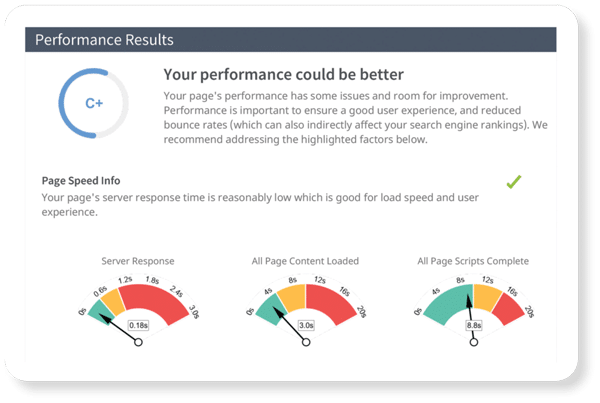
Search engine optimization, SEO in the acronym-sphere, can seem like a mysterious enterprise. How can one website rise to the first page on a Google search when a similar page is stuck back on page three? What are the tricks of the trade to make this happen?
This area of marketing has some similarities to the early days of the big ad agencies on Madison Avenue, the 1950s and 60s. Whether warning of the hazards of halitosis or the benefits of freeze drying of coffee, the creative area of advertising was seen as a mystery, understood and executed only by those copywriters and designers in the big firms such as BBD&O or McCaan Erickson.
While at MyAdvice, we pride ourselves at staying on the cutting edge of certain practices to keep our clients highly ranked and highly happy, we’re never above sharing some of this stuff so everyone can better understand SEO.
How about we do a little bit on “keywords” in this blog?
Keywords in the not-that-old days
Everyone who has ever ventured onto the Internet has likely heard the word keyword (actually two words fused together for some reason). In the earlier days of the Internet and search, keywords were critical behind the scenes of a website. Back then, these “meta keywords” were basically how search engines like Google (or at that time Ask Jeeves or AltaVista) understood what the content was on the pages of a website. The idea was to place keywords in the background of a page (meaning where the viewer will not see them, but the search engine does) that described what that page was all about.
Sounds simple, right? Yes. And ripe for gaming.
Not the Super Mario type of gaming, gaming by marketing firms and website owners. They figured out how to “stuff” the code full of high-volume keywords and phrases that came up in lots of search queries. Unfortunately, the searcher often was irritated with his or her search results thanks to this keyword stuffing.
Think of searching for a “balloon animal artist” for your kid’s birthday party and returns featured websites featuring “hot air balloon companies” or “balloon angioplasty.”
Not exactly satisfying for the searcher. This keyword stuffing diluted the accuracy and value of the search results, and that pissed off the search engine companies. As the king of all search engines, Google responded a few years back by thoroughly devaluing meta keywords in search. Simultaneously, it highly increased the value of actual keywords in the content on the front side of sites. We’ll get to that in a minute.
Still around, but not as big
Meta keywords are still around and are still used by the search engines to figure out what is on a page. But they are not the main methodology any longer. Google closely guards what is in its ranking algorithm, so no one knows what the exact value of meta keywords is anymore. It’s assumed they still help the bots crawling the bazillions of webpages figure out what is on each page.
At Advice, our key for meta keywords isn’t to “game” the system and try and land visitors who had no intention of hitting one of our medical practice client sites. Instead, we place meta keywords behind the scenes that accurately reflect what the page is all about.
A couple keys to meta keywords. About 10 meta keywords for a single page is the limit. We sometimes include common misspellings in keywords and meta tags. That way we can still get searchers to the right page, even if their spelling was off. We’ll also use some long-tail keywords, where appropriate.
Keywords in content
When Google changed the rules a few years back, they elevated the value of page content and devalued the mindless lists of meta keywords on the backside of sites. This made perfect sense, and it created a content boom. Whereas early websites were often just a collection of a few short paragraphs, cryptic bullet point lists, and photos, now suddenly content was king. Google changed its algorithm to reward rich content, both on pages about the product, procedure, service, whatever, and in blogs on the site.
Keywords actually became keywords within that content. Here’s what we mean. Let’s say your dental practice has a page about dental implants. Think of the appropriate keywords that should be worked into the copy: tooth replacement, missing tooth, titanium implant, alternative to bridges, anchor for dentures, longest lasting tooth replacement, etc.
Now, keywords are simply a natural part of your content. That’s good for everyone — it helps the reader understand what you’re talking about and it helps Google understand what your page is talking about. This makes it easy for Google to match the searcher with your site.
It makes no sense to try and stuff your content full of keywords, as this will annoy readers and Google will sense the quality of your content is not great. It makes even less sense to try and work in terms that don’t fit the page simply to try and rank for them (kind of a new form of meta keyword stuffing).
Here’s the deal. When a searcher types in “Best way to replace a missing tooth” that tells Google exactly what he or she is looking for through the keywords or even the long-tail search match of the entire phrase. Google’s bots will have crawled your site. If your dental implants page has keywords that match the search, and if you have a few blogs on your site written about various aspects of dental implants, the bots will place you in the database as a dental implant resource, and Google will rank your site higher in organic search returns. For a local service such as a dentist, location will also play a role, because Google knows you’re not going to travel from Kansas to Florida for your dental procedures.
So, that’s the deal with keywords and organic search. The system is much fairer today and because of it, search has improved, even from just a few years ago. Think of keywords as simply a part of the content on your page and in your blogs. Don’t go overboard with them; simply remember Google is reading them to understand your page.
Keywords also are a whole different animal when it comes to paid search, but that’s another blog for another day.


